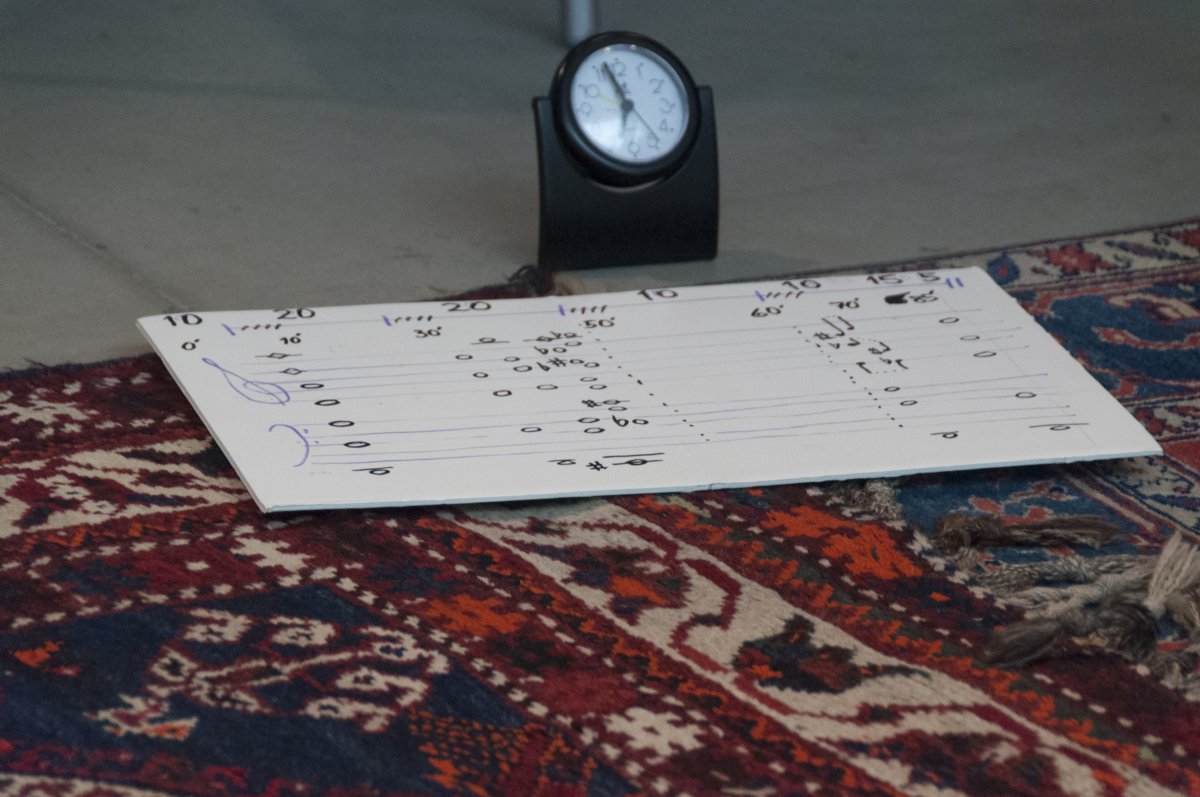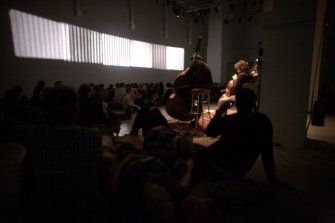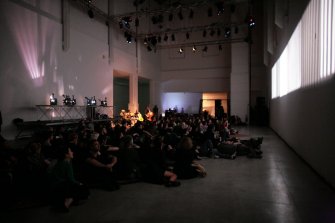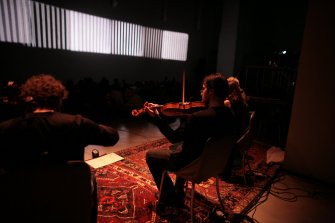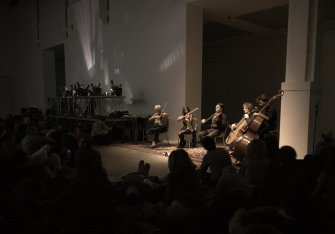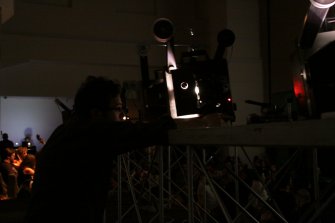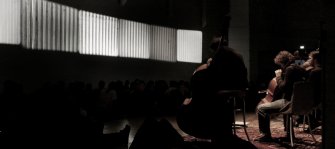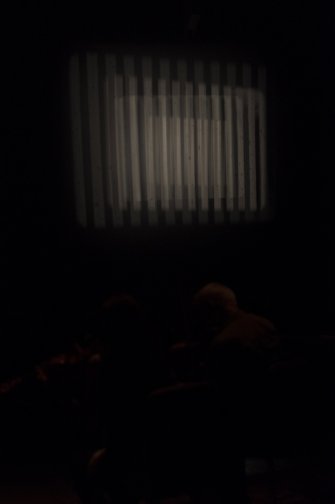Fifty-one Years on the Infinite Plain
Tony Conrad
film & music live environment, prima italiana
Fifty-one Years on the Infinite Plain (1972 - 2013) apre la seconda edizione di Live Arts Week in collaborazione col Teatro Comunale di Bologna negli spazi di MAMbo. L’originaria performance Ten Years Alive on the Infinite Plain è la sintesi ideale della ricerca di Tony Conrad fra cinema, musica e arte. Facendo risuonare un ambiente costruito su proiezioni e suoni, Conrad stabilisce un canone percettivo sinestesico e straniante al tempo stesso, che ridefinisce completamente tanto le dinamiche della percezione quanto i confini disciplinari del suo stesso lavoro. Creato a New York nel 1972, Ten Years Alive on the Infinite Plain combina l’approccio cinematografico strutturale al suono minimale. Quattro proiettori 16mm proiettano un ipnotico loop cinematografico, a cui si associano i suoni continui degli archi dei musicisti. Il risultato è un ambiente audiovisivo sospeso e autoriflessivo, che procede molto lentamente. Ten Years Alive on the Infinite Plain intreccia astrazione formale e introspezione: la dinamica di uno spettacolo dal minimalismo materialista, dialoga con il sentiero percorso da artisti come Mark Rothko, John Cage, Carl Andre e si ripresenta in un momento in cui, quello stesso sentiero, viene messo sotto analisi e riesplorato da generazioni più giovani di artisti visivi e musicisti. Quel che è cambiato da allora è l’assenza di radicalità e la convinzione che queste opere possano innescare piani di relazione con il reale e quindi rappresentare una critica politica della società materialista. Oltre alla sua rarità e potenza, questa è una delle ragioni per cui Tony Conrad ha accettato di aggiornare e ripresentare a Bologna quella seminale performance 41 anni dopo, con il titolo Fifty-one Years on the Infinite Plain.
con Tony Conrad violino, Silvia Mandolini violino, Valentino Corvino viola, Marco Radaelli violoncello, Emiliano Amadori contrabbasso, Mirco Santi proiezioni 16 mm
coproduzione Xing/Live Arts Week, Fondazione Teatro Comunale di Bologna
film & music live environment, italian première
Fifty-one Years on the Infinite Plain (1972 -2013) opens the second edition of Live Arts Week in collaboration with the Teatro Comunale di Bologna in the MAMbo spaces. The original performance Ten Years Alive on the Infinite Plain is the ideal synthesis of Tony Conrad’s research in film, music and art. By making an environment built on projections and sounds resonate, Conrad establishes a standard for synesthetic perception, and at the same time alienating, redefining both the dynamics of perception and the disciplinary boundaries of his own work. Created in New York in 1972, Ten Years Alive on the Infinite Plain combines his structural approach to the unities of cinema with his minimal and open approach to music. Four projectors project a hypnotic 16mm film loop, which is associated with the continuous sounds of the musicians’ string instruments. The result is a suspended audio-visual environment which proceeds very slowly and seems self-reflective, that is, meditative and intense at the same time. Ten Years Alive on the Infinite Plain weaves together formal abstraction and introspective romanticism: the dynamics of a quasi-religious show and materialist minimalism, in dialogue with an open path and an artistic route similar to artists as Mark Rothko, John Cage, and Carl Andre. The project is presented again while that same path is re-explored by younger generations of visual artists and musicians. What has changed since then is the absence of radicalism and the belief that these works can trigger levels of relationship to reality and therefore represent a political critique of the materialistic society. Beyond its rare qualities and power, this is one of the reasons that Tony Conrad has agreed to update and bring that seminal performance to Bologna 41 years later, with the title Fifty-one Years on the Infinite Plain.
with Tony Conrad violin, Silvia Mandolini violin, Valentino Corvino viola, Marco Radaelli cello, Pierangelo Galantino double bass
coproduction Xing/Live Arts Week, Fondazione Teatro

